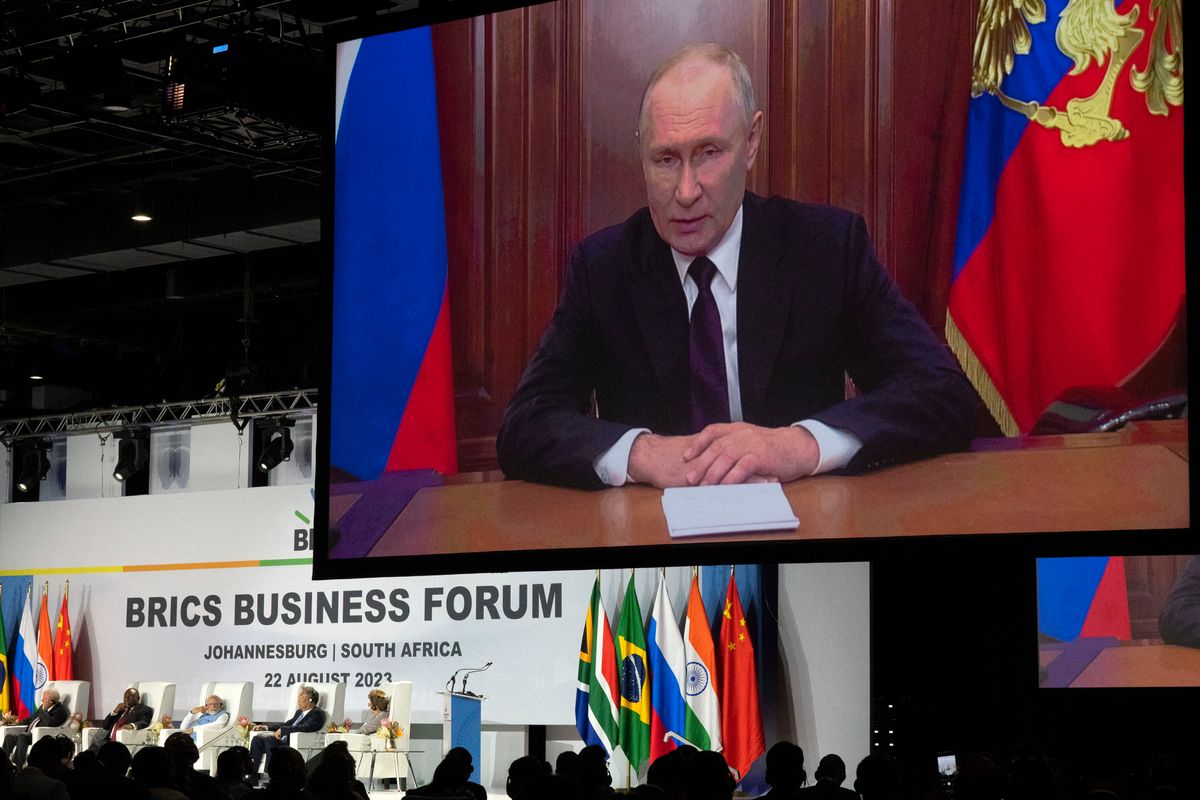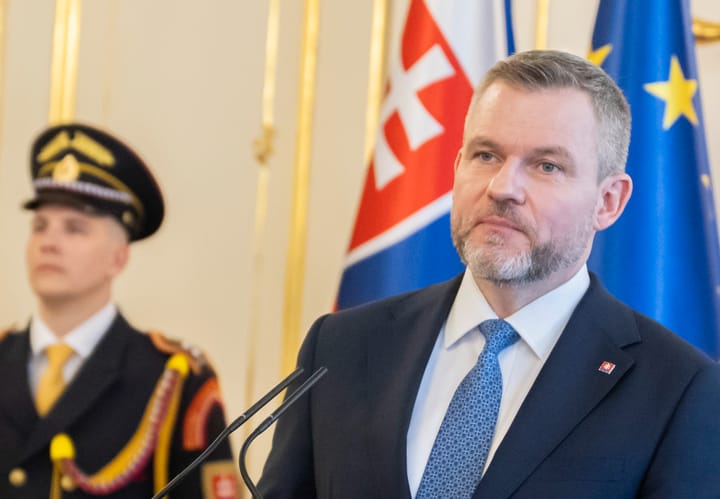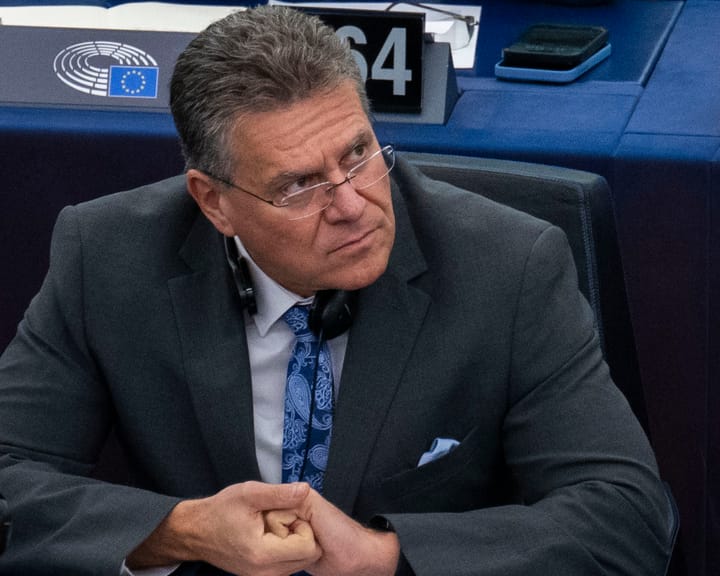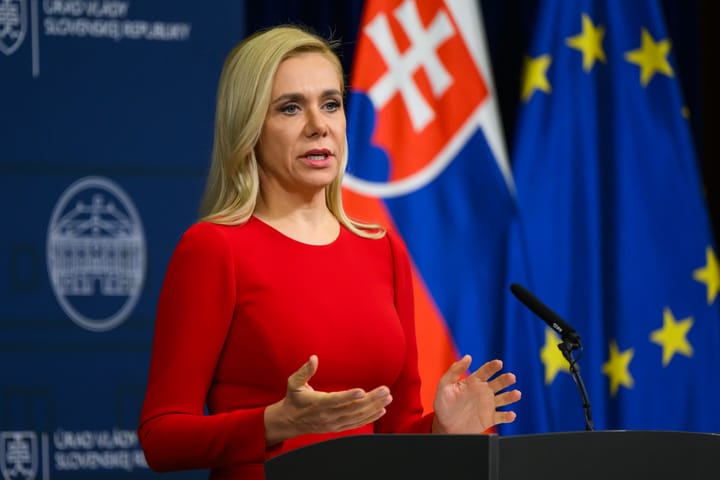Era of New Geopolitics

by AFP, ANSA, dpa, EFE, STA
The most recent BRICS summit shows that weeks before world leaders will gather at the 78th United Nations General Assembly, new geopolitical blocs are emerging. The Russian invasion of Ukraine and climate crisis are the main drivers of change in the new geopolitical order. Which role does the Global South play in future politics?
Chinese leader Xi Jinping and Russian President Vladimir Putin challenged the West at this week’s BRICS summit of emerging economies (Brazil, Russia, India, China and South Africa) in Johannesburg. Some have already defined it as “the summit of the Southern Hemisphere”. Putin, meanwhile, did not attend the summit in person, as he would have faced an arrest warrant by the International Criminal Court (ICC) for alleged war crimes.
BRICS, held from August 22 to 24, was certainly the most significant gathering for Russia and the Global South since the Russian invasion of Ukraine in 2022. It served as a meeting platform between Russia and four countries that not only refuse to side with the West against Moscow but aim to build, as the theme of the event says, an “inclusive multilateralism”. BRICS announced an expansion for 2024 to six new members (Argentina, Egypt, Ethiopia, Iran, Saudi Arabia, and the United Arab Emirates). In short, a challenge to Western domination, even if a real break is not possible, in a world of interconnected interests.
Inevitably, much of the attention was focused on Putin, who ordered one of Europe’s biggest war since 1945 with his invasion of Ukraine almost 18 months ago. The Russian leader addressed the summit via video link and condemned Western countries for what he called the “illegitimate sanctions that trample all the rules of international trade” and for their policies which, in his opinion, fuel inflation. A crucial step towards a multilateral world is de-dollarisation, according to the Russian leader. A process which in his opinion “is already irreversibly taking hold“, demonstrated by the fact that the use of the American currency was only equal to 28.7 percent of the total trade amount between the five BRICS countries in 2022.
“For the EU, this BRICS development means a massive challenge. We do not have many years to prove that Europe wants to be a credible, reliable and fair partner for poor and developing countries. If we don’t succeed, then BRICS may become the vanishing point for many of these countries.”
European Green MEP Reinhard Bütikofer
Russia takes repeated swings at the West in its search for friends
Russia intends to continue to present itself as an alternative to Western countries whose neo-colonial policies it denounces. Putin insisted in a video speech at the BRICS summit that Russia was not to blame for the food crises in the world. He announced – as a sign of goodwill and signal to the Southern Hemisphere –, that Moscow will supply thousands of tons of cereals free of charge to six African countries.
Last month, Russia terminated a UN-brokered deal to move vital grain exports out of blockaded Ukrainian ports. Turkey, along with the UN, had brokered the now-frozen grain deal between Ukraine and Russia and sees itself as a mediator in the war. President Recep Tayyip Erdoğan earlier said he expects to convince his Russian counterpart Vladimir Putin to renew the grain deal. Moscow has so far not confirmed any such plans.
Putin’s rhetoric has become increasingly bellicose and threatening since February 2022. The United States and European countries responded by imposing a web of financial and trade sanctions. German Chancellor Olaf Scholz said last year that Putin’s world view was warped by “great power mania and imperialism“.
In mid-August, Putin also used the opening of the 11th Moscow Conference on International Security to take known swipes at Western powers, blaming them for fuelling unrest around the globe. Conflicts in large parts of the world were solely caused by the “geopolitical adventures and the selfish, neo-colonial behaviour of the West“, Putin said in a video message. The Kremlin boss has long accused the West of conspiring against anything and everything Russian.
Russia and China, a no limit partnership?
Russia seemed to be trying to use the security conference in Moscow to shore up alliances. Among the participants of the security conference was the new Chinese Defence Minister Li Shangfu.
China is Russia’s largest trading partner and has refrained from imposing sanctions on Russia. China’s leadership has not publicly condemned Russia’s invasion of Ukraine, instead focusing on acting as a mediator between the two warring parties. Beijing and Moscow declared a “no limits” partnership shortly before Russia invaded its neighbour in February 2022. Putin found the side of Chinese President Xi Jinping, who in a speech read by his Commerce Minister, Wang Wentao, reaffirmed his willingness to “promote the democratisation of international relations and multipolarity”.
But the Chinese giant is grappling these days with a crisis that could be triggered by the real estate recession. With an overall GDP of around 26 percent of the world’s GDP, the five BRICS countries are still far from the total of the G7 and the other EU countries. On the conflict in Ukraine, however, Beijing is not changing its mind. Chinese Defence Minister Li Shangfu also visited Russia’s ally Belarus on August 17.
“Friends“ against US hegemon?
In a speech delivered by the Chinese commerce minister at the BRICS summit, Xi criticized the United States without explicitly naming the country. “There is a country that wants to maintain its hegemony and has done everything to cripple emerging and developing countries,” he said. “Those who are developing fast are being contained by them. Those who catch up are hindered.”
Belarus and China are on the same page when it comes to building a multipolar world, Belarusian leader Alexander Lukashenko recently said. Like Putin, Lukashenko frequently speaks out against what he also describes as US hegemony. Chinese Defence Minister Li Shangfu and Lukashenko hailed plans to increase military cooperation between both their nations in Minsk on August 17. Joint military drills are expected to be conducted in 2024, the Belarusian president said. The autocratic leader stressed that Belarus relies primarily on its “friends” Russia and China for military assistance.
What to expect from the UN General Assembly?
In February 2023, a year after Russia’s invasion of Ukraine, the UN General Assembly called for an immediate end to the war in Ukraine, with 141 Member States in favour and seven against (Belarus, the Democratic People’s Republic of Korea, Eritrea, Mali, Nicaragua, Russia and Syria). Among the 32 abstentions were China, India and Pakistan.
In the weeks prior to the United Nations General Assembly, UN Secretary General António Guterres attended the BRICS summit to urge cooperation in the face of crises. He met with various leaders on the margins of the event. “I have come to Johannesburg with a simple message: In a fractured world with overwhelming crises, there is simply no alternative to cooperation. We must urgently restore trust and reinvigorate multilateralism for the 21st century,” Guterres said Thursday in his speech at the BRICS summit.
Guterres called for a reform of global governance structures, which “reflect the world of yesterday” just after World War II, and warned that “without such reform, fragmentation is inevitable.” “This is particularly true in the case of the UN Security Council and the Bretton Woods institutions,” said the head of the United Nations, referring to the World Bank (WB) and the International Monetary Fund (IMF), dominated by West.
Slovenia will take up its seat as a non-permanent member of the UN Security Council in 2024 and 2025 for the second time in its history. Slovenia’s diplomacy has campaigned on a message of preserving international peace and cooperation. Included in that were matters of security, like climate, energy and food security, as well as integration and promotion of international solidarity. Thus, it will have to face many challenges, including changing geopolitical relations.
Slovenia has repeatedly demonstrated that, as an EU and NATO member, it stands by the side of the attacked Ukraine. However, after Slovenia’s election to the UN Security Council in June, Foreign Minister Tanja Fajon said that it would be necessary to find a way to talk and cooperate with Russia because without dialogue it is not possible to solve the world’s challenges.
Besides Ukraine, the UN General Assembly will focus on the climate crisis
A few weeks ahead of the U.N. General Assembly, the European Commission lost “Mr. Green Deal”, the most visible face of the fight against the climate crisis: the Dutch Social Democrat Frans Timmermans is stepping down at a crucial time for European climate laws. He is now the lead candidate for a left-wing coalition in the Dutch elections in November. The Slovak Maroš Šefčovič, currently serving as vice-president of the European Commission, will succeed him as EU Commissioner, tasked to deploy the European Green Deal.
In mid-August, Brazilian president Luiz Inácio Lula da Silva spoke by phone with his US counterpart Joe Biden and stressed the importance of making serious progress in the debate on the climate crisis ahead of the next General Assembly of the United Nations. In the telephone conversation, Lula detailed the discussions carried out at the Amazon Summit, held in the Brazilian city of Belém at the beginning of August, with the participation of representatives of the eight countries that share the largest tropical forest on the planet. The Brazilian President Lula also proposed a reform of the UN Security Council.
***************************************************************************
The News Agency of the Slovak Republic (TASR) is a part of project called the EuropeanNewsroom (ENR). The aim of the project is to strengthen news services from various countries in Europe and to support cooperation between the agencies' international news reporters. The ENR project includes the following agencies: AFP, ANSA, Agerpres, APA, ATA, Belga, BTA, DPA, EFE, Europa Press, FENA, HINA, MIA, STA, Tanjug and TASR. Polish news agency PAP is an associated partner, while the Ukrinform agency is also participating in the project as part of the solidarity shown to Ukraine.



